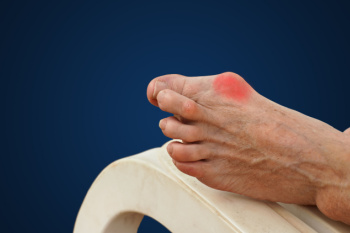
Bunions are a common foot deformity where the joint at the base of the big toe becomes enlarged and misaligned, causing the toe to angle inward. This can lead to pain, swelling, and difficulty in finding comfortable shoes. The condition often develops due to genetic factors, wearing ill-fitting footwear, or arthritis. If you have bunions, it is essential to take proactive steps to manage the discomfort and prevent further progression. Start by wearing shoes with a wide-toe box, low heels, and good arch support. Regularly performing foot exercises to strengthen the muscles around the joint can also provide relief. If these conservative measures do not help, or if the bunion becomes severely painful, it is suggested that you consult a podiatrist. In some cases, surgery may be recommended to correct the deformity and restore foot function.
If you are suffering from bunion pain, contact one of our podiatrists of Fusion Foot and Ankle. Our doctors can provide the care you need to keep you pain-free and on your feet.
What Is a Bunion?
Bunions are painful bony bumps that usually develop on the inside of the foot at the joint of the big toe. As the deformity increases over time, it may become painful to walk and wear shoes. Women are more likely to exacerbate existing bunions since they often wear tight, narrow shoes that shift their toes together. Bunion pain can be relieved by wearing wider shoes with enough room for the toes.
Causes
- Genetics – some people inherit feet that are more prone to bunion development
- Inflammatory Conditions - rheumatoid arthritis and polio may cause bunion development
Symptoms
- Redness and inflammation
- Pain and tenderness
- Callus or corns on the bump
- Restricted motion in the big toe
In order to diagnose your bunion, your podiatrist may ask about your medical history, symptoms, and general health. Your doctor might also order an x-ray to take a closer look at your feet. Nonsurgical treatment options include orthotics, padding, icing, changes in footwear, and medication. If nonsurgical treatments don’t alleviate your bunion pain, surgery may be necessary.
If you have any questions, please feel free to contact our offices located in Fort Worth and Arlington, TX . We offer the newest diagnostic and treatment technologies for all your foot care needs.


